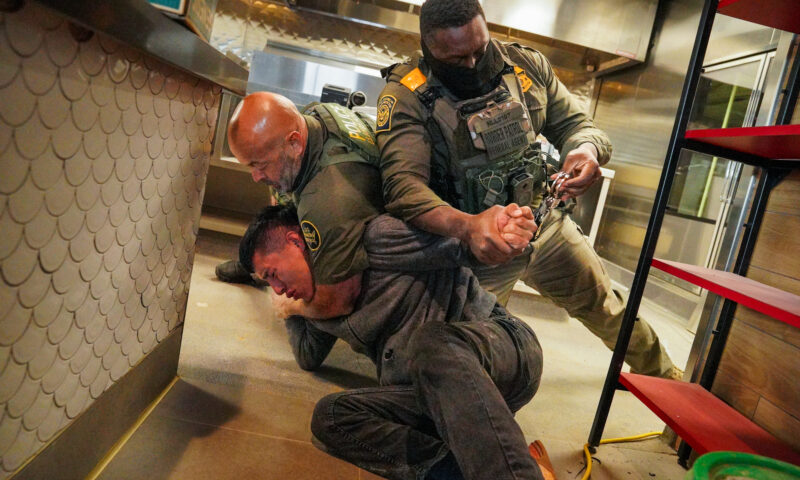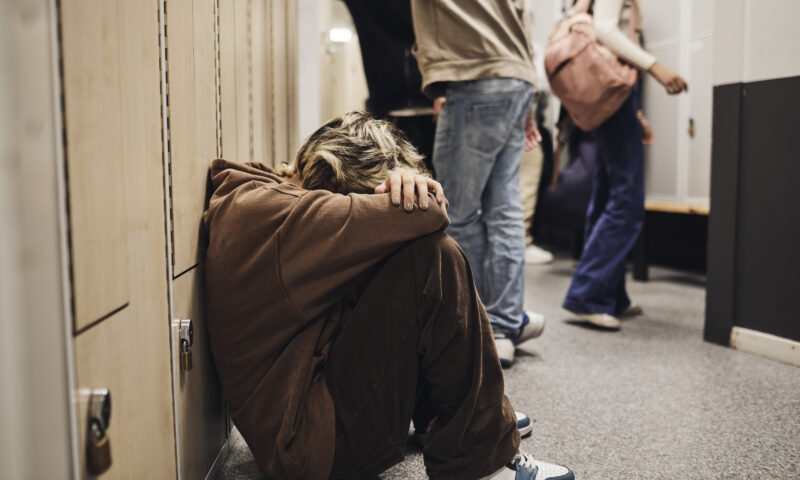Education
Teachers Take on Privatization
April 1 was a historic day for public education in the U.S. Joined by diverse community groups and other workers, Chicago’s public school teachers took to the streets demanding more from city and state leaders.

April 1 was a historic day for public education in the U.S. Joined by diverse community groups and other workers, Chicago’s public school teachers took to the streets demanding more from city and state leaders. More autonomy in the classroom. More funding for education. More support for students, school nurses and librarians. Even higher wages for fast-food workers across the city.
But they were also demanding less. Less unregulated charter schools. Less “high stakes” standardized testing. In short, less privatization.
Since the turn of the century, Chicago’s public schools have been dramatically “reformed.” The city has closed over a hundred traditional public schools, most of them in predominately black and Latino neighborhoods, and opened nearly the same number of charter schools with little transparency and oversight.
Unregulated charter expansion takes funds and resources from students at traditional public schools, and too often hands control to unelected boards that lack real public accountability. Chicago’s 131 charter schools have benefited from private investment from billionaires Bill Gates and Eli Broad. Meanwhile, the public school district is struggling with a $1.1 billion budget deficit.
Chicago’s leaders have also pushed the sort of testing that determines the fate of students, teachers and schools. According to many teachers, more testing takes valuable learning time away from students. But it’s also a big business. “Education companies…are making billions in profit off these tests,” said Chicago special education teacher Sarah Chambers.
On the eve of the strike, another Chicago teacher described high-stakes testing’s personal toll: “Nationally, ‘reformers’ are pushing rigid teacher evaluation systems, where we’re kept busy being made to prove that we are good, where we’re told as a starting point that we have deficits in ourselves as teachers.”
Friday’s strike was a powerful demand for what teachers and students across the country need most—more support and resources—but it was also a protest against a growing national crisis, the privatization of our public education system.

-

 The SlickJanuary 12, 2026
The SlickJanuary 12, 2026Will an Old Pennsylvania Coal Town Get a Reboot From AI?
-

 Latest NewsJanuary 13, 2026
Latest NewsJanuary 13, 2026Straight Out of Project 2025: Trump’s Immigration Plan Was Clear
-

 Column - State of InequalityJanuary 22, 2026
Column - State of InequalityJanuary 22, 2026On Eve of Strike, Kaiser Nurses Sound Alarm on Patient Care
-

 Column - California UncoveredJanuary 14, 2026
Column - California UncoveredJanuary 14, 2026Keeping People With Their Pets Can Help L.A.’s Housing Crisis — and Mental Health
-

 Latest NewsJanuary 16, 2026
Latest NewsJanuary 16, 2026Homes That Survived the 2025 L.A. Fires Are Still Contaminated
-

 The SlickJanuary 20, 2026
The SlickJanuary 20, 2026The Rio Grande Was Once an Inviting River. It’s Now a Militarized Border.
-

 Column - State of InequalityJanuary 15, 2026
Column - State of InequalityJanuary 15, 2026When Insurance Says No, Children Pay the Price
-

 Latest NewsJanuary 21, 2026
Latest NewsJanuary 21, 2026Honduran Grandfather Who Died in ICE Custody Told Family He’d Felt Ill For Weeks

